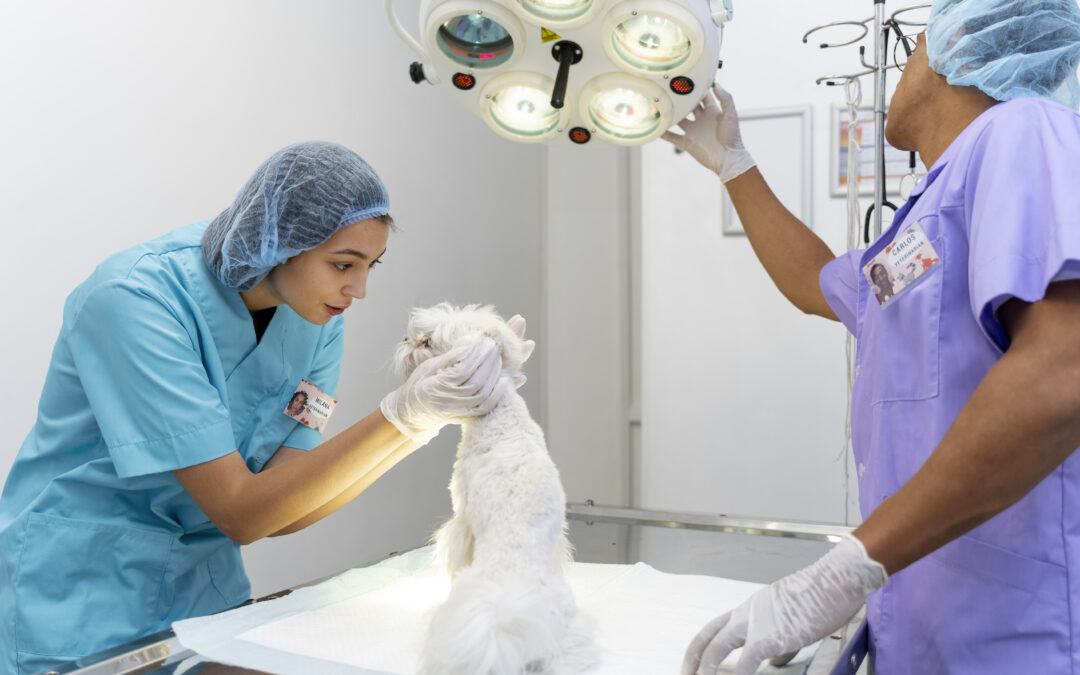Lilo is a curious cat from the Worcester Animal Rescue League. One night, this little kitten stuck its limb out the front of its cage and got it caught on one of the pieces of metal in the grate. This resulted in a puncture wound to poor Lilo. And it was pretty deep.
The team from the Worcester ARL brought Lilo into Veterinary Urgent Care Center of Worcester to assess the damage done by the grate. Dr. Mordarski performed a sedated procedure to stitch the damaged tissue and close the hole in Lilo’s limb.
Sedated procedures are things that are handled often in a veterinary urgent care setting, with anything from minor to moderate injuries, like the one Lilo suffered in Worcester.
It’s important that you seek veterinary care immediately if your pets has an open wound for many reasons, including:
Mitigating the risk of infection
Pets are constantly in contact with dirt, bacteria, and other pathogens, and their natural instinct to lick a wound only increases the risk of contamination. At an urgent care facility, veterinary professionals can properly clean and disinfect the wound to minimize this risk. Plus all of our Veterinary Urgent Care Center locations can also prescribe antibiotics if necessary, something you can’t safely or legally do at home.
Assessing the severity of the wound
Not all wounds are equal. What may look like a superficial scrape could be a puncture wound, a torn muscle, or even damage to underlying tissues or organs. An urgent care veterinarian can assess the depth and severity of the wound and determine whether stitches, drains, or even surgery is required. Veterinary Urgent Care Center hospitals are equipped with the diagnostic tools and expertise needed to make that call on the spot.
Managing the pain for your pet
An open wound can be incredibly painful. Your pet may be scared, limping, whining, or behaving aggressively due to discomfort. Urgent care teams are trained to manage pain effectively and provide sedation or local anesthesia if needed to treat the wound safely and humanely. This makes the healing process more comfortable for your pet and reduces the risk of complications.
Our Veterinary Urgent Care Center hospitals are open 7 days a week for your pet’s urgent needs in Braintree, Dedham, East Providence, Easton, Narragansett, Plymouth, Saugus and Worcester. Book online or view our hours at any of our hospitals before you walk-in 7 days a week at veturgentcare.com.




